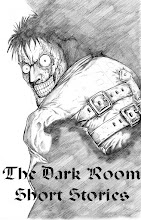I'm now going to write a similar blog about Resident Evil: Afterlife which I watched last night and loved almost as much as I loved Winter's Bone. If you've been reading this blog for a while you should know this by now, but I never watch films with any pre-conceptions. When I press play an awards-nominated, critically acclaimed indie film has the same chances of impressing me as the fourth film in a franchise about a zombie apocalypse based on a videogame. And this time the two films came out pretty even.

To be fair, Resident Evil: Afterlife got a lot more things wrong than Winter's Bone did and had more moments that didn't work. But it did have these seven things going for it (and don't worry, there aren't any spoilers) -
1. It passes the Bechdel Test with flying colours - Yes, I have to put in the usual disclaimer that this isn't necessarily a mark of quality. But the fact is if I start talking about Resident Evil: Afterlife and feminism in the same sentence it won't be too long before someone comes along and tells me the women in the film are just the usual male action-movie stereotypes with breasts. What I like about the Bechdel Test is that it neatly sidesteps this argument and proves there's some value in just having a nice number of speaking female characters. Resident Evil: Afterlife has three. And they never talk about men.

2. The opening - The opening few minutes of this film provided one of the most visually interesting sequences I've seen in a genre film for some time (although be warned - it does feature Tokyo being completely devastated which is a little tough to watch right now). It had an art film opening. With zombies. This then develops into a surreal action sequence in which dozens of identical Milla Jovovich clones take down an underground facility that looks like it may have been designed by M.C. Escher. It takes a sequence that could so easily have been a bunch of explosions and makes it into something rather unique and a little bit beautiful. I was impressed.
3. Milla Jovovich is super cool - Probably a matter of opinion, but she is particularly awesome in this film.

4. Retro appeal - It had a kind of John Carpenter/Walter Hill feel about it that reminded me of simpler times. The film spends about 20 minutes setting up the world and the main characters, then they're presented with a problem. They're stuck at point A and they need to get to point B. Between A and B are a billion zombies. That's all we need to know. The characters are developed minimally and efficiently (unlike in Legion which I also watched last week - a film that sets up it's premise efficiently enough but then doesn't really know what to do with it so spends the middle Act on a series of uninspired duologues).
5. The music - Marilyn Manson's score for the first Resident Evil film was awesome and proof that he should have stuck to scoring films instead of making progressively more boring albums. It was also very John Carpenter. Tomandandy's score for this film is a kind of epic cyberpunk John Carpenter with guitars. Which is ace.
6. What they choose to take from the games - I'm reluctant to mention that I'm a huge fan of the games because I don't really feel it has any bearing on how I feel about the films. But what I will say is this - the reason the Resident Evil films have managed to be better than most videogame films is that the only elements they've taken from the games are the cinematic ones. They don't try to emulate the gameplay (as in Doom) and they are made on the understanding that the film and the game are separate art forms. That said, there's enough in the films for fans of the games to recognise.
7. I like Paul W.S. Anderson - I don't mean as an artist, he just comes across like a nice bloke in interviews. Which makes me more inclined to like his films.
That's pretty much it. I'm not saying it's a classic that everyone must rush out and see immediately, but it's a good example of something that looks like a big dumb genre film when it actually has a lot more going for it than you might think.


3 comments:
Totally agree. Resident Evil flicks look good, feel good and they are brilliantly entertaining
This was one of the best action offerings at the cinema last year. Totally entertained the whole time, and one of the few 3D offerings that actually worked on the big screen.
Glad it's not just me! Wish I'd seen it in 3D...
Post a Comment